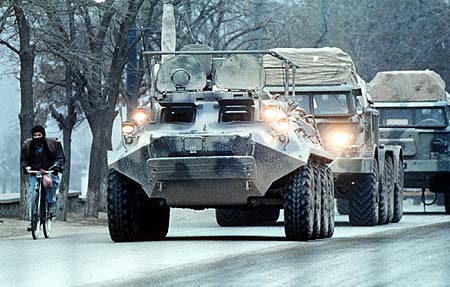By Fazal Hadi Hamidi
Anywhere you go to in Afghanistan you will hear sad stories of war. Even if your heart were made of stone these will make you weep. Uncle Malak Shamsudin from Salang testifies*
"It was early morning on Dalwa 24, 1367(early 1988). There was half a metre of snow on the ground. Suddenly there was the sound of rockets and bombs. In the blink of an eye eight of my family members and seven of my uncle's sons were dead. No house was left without martyrs and sadness in Salang."
Malak Shamsudin lived in Salang through the years of unending war. He says he never thought of leaving his country which was "sweeter than everything", and he preferred to die here than lose his homeland.
He survived but he saw death at close quarters. On Dalwa 24, he was forced to bury 15 relatives. He cried over their bodies.
Now 63 years old, he continues to live in the ruins of the house where the bodies were laid out. The bombs almost brought the house down.
Massacre at 4am
He says the Soviet army was retreating after 10 years in Afghanistan. "They came to us and told us that they were passing through, and would not attack. But the government had told them an attack (by mujahedin) was possible and they should take strong security action. We were preparing for the morning prayer. It was snowing heavily. I did my ablution with warm water, and had just got to the front door when I heard a rocket come and hit the Salang Valley. The Soviets had come. The massacre had started."

A Soviet armored vehicle leads a convoy on the streets of Kabul, Afghanistan’s capital, in January 1989. The Soviet withdrawal from the country was scheduled to be completed by February 15, 1989, under the terms of the Geneva agreement. (Photo: Liu Heung Shing/AP)
It was 4 o'clock in the morning. "The sky had spread a black shawl (mourning) over Salang," says Shamsudin. People were taken out of their houses, cars, mosques, and shops. They were lined up and shot. "Death and doomsday had come," he adds. The shooting continued till 4pm when the Soviets left.
For the next three days the villagers were burying their dead. The Soviets had killed 1,237 people.
"The Russians (as the Soviets were called across Afghanistan) had martyred my father, brother, two nephews, my wife, my three children, 7 of my uncle's sons and numerous villagers," he says. "On this day there was no house that the Russians had not left a martyr."
The valley of Salang was awash in blood. More trouble was on its way.
When the people of Salang took the bodies from Ahangaran village to Olang area, the Afghan military unit (number 18th Dehdadi of Mazar-e-Sharif) did not let them bury the dead in the graveyard.
In search of justice
"We eventually found a small place in the desert and buried the martyrs. The village of Ahangaran was not for the living any more. We moved to the Khenjan area of Baghlan province. We stayed there for four years. No one helped us, and we returned back to our house," he says.
Sorrow hung like a thick cloud over Malak Shamsudin's house. He had taken charge of 20 orphan nephews and relatives. "I am carrying this load now as well," he says. "No humanitarian organisation has come here to ask me my story of my martyrs. I have financial problems. I know that if the Russians (Soviets) killed us Afghans were also involved. I know they (Afghans) are in the government (Hamid Karzai government). I request the government to arrest these people."
Shamsudin is still in search of justice 25 years later. "The government should ask me. I will show (identify the guilty) one by one. For the sake of God don't give big positions to murderers of innocent people in Salang. Otherwise we would be sorrowful about the blood of our martyrs."
The massacre in the Salang Valley was the final act of revenge by the Soviets on the oppressed Afghan nation. Two days later the last military unit left Afghanistan via the Hairatan border.
The departing troops were led by a Soviet general who is believed to have said he was not able to look back as he crossed the Hairatan Bridge. "I feel uneasy in my body because I see darkness and a bleak future in front (future) and a destroyed history at the back (past)," he is quoted as saying.
The victory of the Afghan nation over Russia (forcing the Soviets to exit) was not an easy victory. It was due to the heroism of countless brave Afghans and mujahedin armed by the United States, the Soviet Union's cold war rival. According to Malak Shamsuddin, the impact of the Jehad in Afghanistan forced the "Russians" to acknowledge the grave mistake in attacking Afghanistan. The defeat can be a good lesson for others, he ends by saying.
* The testimonies of survivors of war crimes are our contribution to creating greater public awareness about people's hopes and claims for justice, reconciliation and peace. These testimonies and life stories are the basis for a radio drama that is being broadcast by seven Killid radios.



